FEBS Summer Fellowships: insights from awardees in 2018

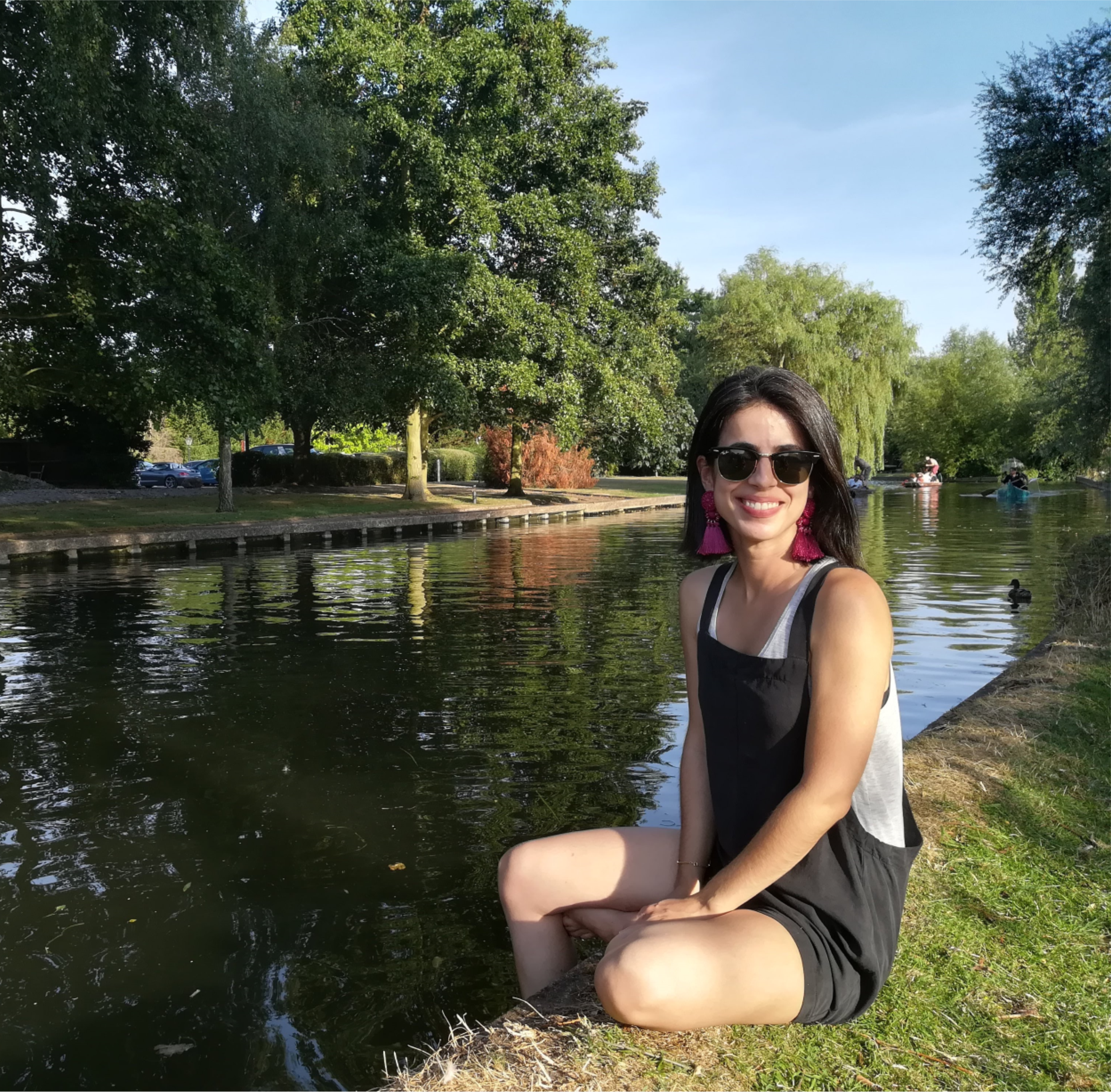
Vera Ferreira is a third-year PhD student working in the Center for Nuclear Sciences and Technologies in Lisbon, Portugal on the development of non-invasive radioactive probes for cystic fibrosis (CF) to assess drug therapy response in CF patients. Her 2018 FEBS Summer Fellowship was carried out in the group of Dr Gonçalo Bernardes, Cambridge, UK. Image: Vera at the River Cam, Cambridge.
Why did you apply for a FEBS Summer Fellowship?
The FEBS Summer Fellowship looked a great opportunity for me to experience a different research environment. At the time, I had never worked abroad and it was something that I wanted since I started my PhD. A collaboration with a research group from the Department of Chemistry at the University of Cambridge arose, and I decided to apply for a FEBS Fellowship.
What was it like settling into your new lab and city?
The adaptation to Cambridge was very easy, since the city is quite small (as I like!) and calm during summer. Besides, the hot weather in the UK last year reminded me of Lisbon :) In the lab, it was also easy since I already knew a post-doc working there. The other students were also very welcoming, always helped me when I needed it, and had a great sense of humour!
Did you achieve your research aims?
I stayed in Cambridge for two months and completed most of the work that I proposed in the Fellowship application. The main benefit of the short visit was the knowledge gained in the laboratory that I can now apply in my lab. We intend to continue the collaboration between both research groups given this successful experience.
What else did you learn or enjoy?
Besides all the knowledge gained during my stay in the Department of Chemistry, I think that this experience was also important for my personal growth and particularly my mental health. The past year was a bit harsh, because I was struggling with my research and not having what I considered as positive results. During the two months of the Fellowship, I worked in a different research area and was able to overcome difficulties and achieve the proposed aim. So, to distance myself from what I was doing in my research helped me to realize that I was capable of doing difficult things and still succeed.
I always remember my stay in Cambridge as a very positive experience. If I had to choose favourite moments, I would say showing Cambridge to my friends when they visited me, and also my bike rides through the city and along the river Cam :)
Would you like to continue in science? What are your next aims?
Right now I’m beginning the fourth year of research, so I’m really focused on finishing my PhD. In the future, I would like to use the knowledge I’ve gained during my Master’s and PhD to explore new perspectives, perhaps outside academia.
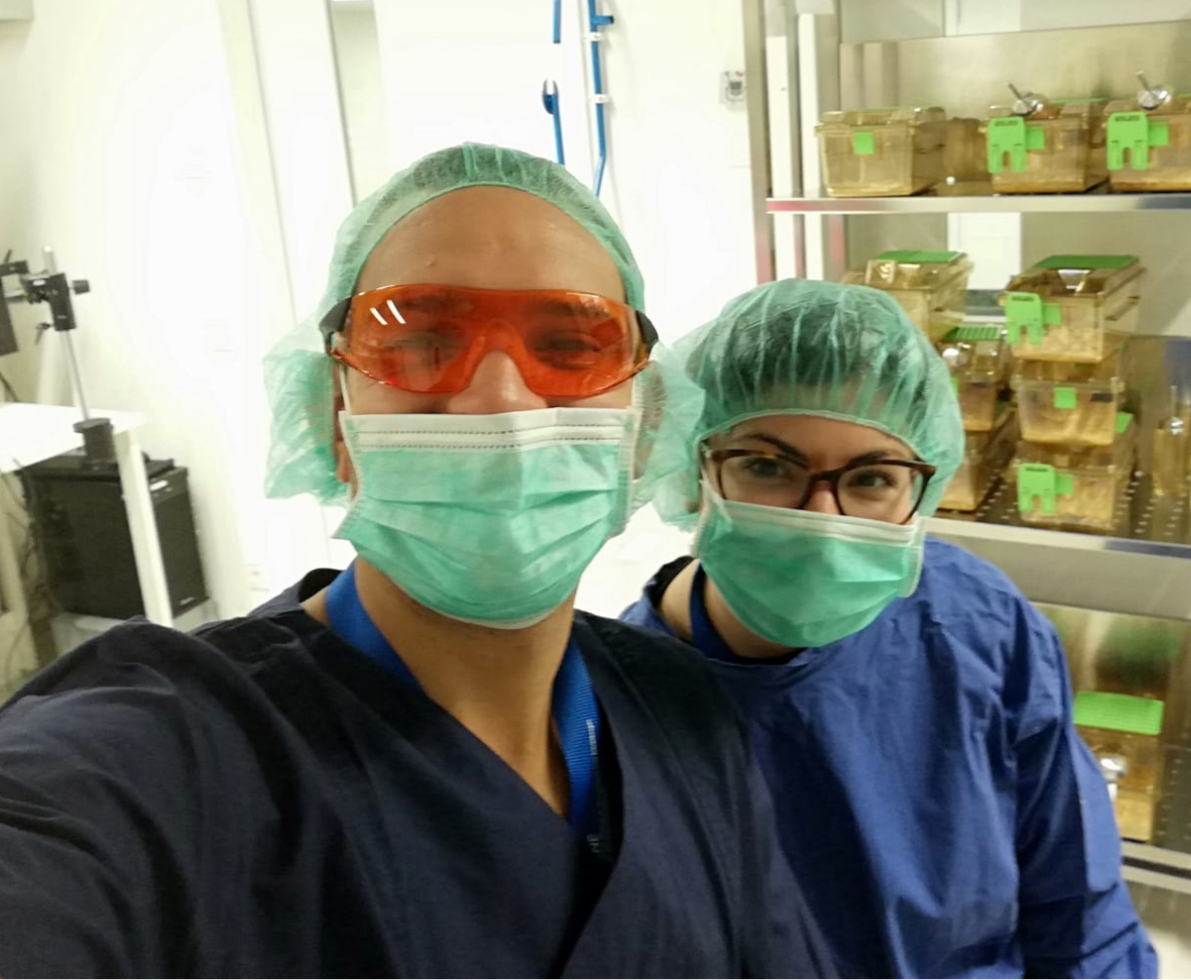
Irene Lopez Gutiérrez is a a first-year PhD student at the University Complutense of Madrid, Spain studying anti-inflammatory and neuroprotective effects of noradrenaline in Alzheimer’s disease. Her FEBS Summer Fellowship was carried out in the group of Prof. Dr Michael Heneka at the University of Bonn, Germany. Image: Irene (right) in Bonn with colleague Dr Dario Tejera.
Why did you apply for a FEBS Summer Fellowship?
I have always wanted to investigate at a foreign University to improve my scientific skills and my English. In October 2017 I was at the “XL Congress of the SEBBM - The 1st FEBS3 + Joint Meeting of the French-Portuguese-Spanish Biochemical and Molecular Biology Societies” in Barcelona (Spain) where I heard about the FEBS Summer Fellowship. It was a great chance for me, so I decided to apply for it. I am very grateful for this important opportunity.
What was it like settling in to your new lab and city?
Since the first day I felt at home. Bonn is a small city so it is very easy to move around. There are a lot of Erasmus students so I could meet people from all around the world. We all helped each other when starting in the new city. I always felt very welcome. I made very good friends and we still keep in touch – actually we see each other once in a while. Moreover, in the lab I also had the chance to work with international students and outstanding scientific researchers. The first day in the lab I met Dr Dario Tejera, who is brilliant. He was my supervisor during the Fellowship and he helped me get around the lab. He taught me with passion and patience and I learnt a lot from him. The multicultural lab environment has helped me gain a more open-minded point of view.
Did you achieve your research aims?
Although three months is a short period of time, I could accomplish many of the aims. I was working on the characterization of a traumatic brain injury model and also projects related to other brain diseases such as Alzheimer’s disease. In addition, I had the opportunity to work with some of the best experts in the field of neuroinflammation. Being able to make these contacts has been one of the main benefits from my stay. We can collaborate with each other and also my lab can take advantage of this. This work relationship will benefit me during my scientific career.
Did you experience any particular challenges?
For me the main challenge was the language. My level of English was not good enough and therefore the first days were a little bit difficult. However, during the Fellowship in Bonn I could improve my English skills and even learn some German.
Tell us about a favorite moment
My other passion apart from science is to travel. I travelled during the weekends, visiting different cities near Bonn such as Cologne, Berlin and Düsseldorf, and also Amsterdam with friends from Spain. This enriched my experience. It is difficult to choose one favorite moment, but the weekend that I traveled to Berlin with my laboratory partner was our first trip together out of Bonn. It was really special because we got to know each other a lot. We had a great time and we visited many places and learnt a lot about Germany’s history. She is someone I will never forget.
Would you like to continue in science? What are your next aims?
Yes, science is my passion and now I cannot imagine working in another field. After my FEBS Summer Fellowship I started my PhD in the laboratory of Dr Juan Carlos Leza in the University Complutense of Madrid. My research focuses on the study of the anti-inflammatory and neuroprotective effects of noradrenaline in Alzheimer’s disease. We also study how the use of some drugs that increase noradrenaline levels in the brain could reduce the development of this disease. In the near future, we will collaborate with Prof. Dr Michael Heneka’s lab, giving me the opportunity to develop my scientific career.
For more information on FEBS Summer Fellowships, including eligibility criteria and how to apply, see the FEBS website here: https://www.febs.org/our-activities/fellowships/febs-summer-fellowships/
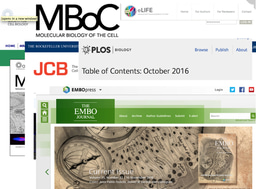
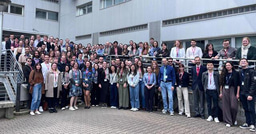
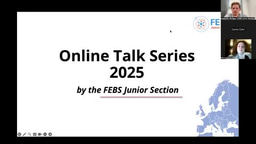

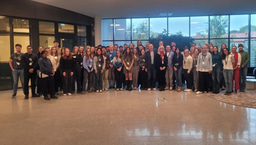
Join the FEBS Network today
Joining the FEBS Network’s molecular life sciences community enables you to access special content on the site, present your profile, 'follow' contributors, 'comment' on and 'like' content, post your own content, and set up a tailored email digest for updates.